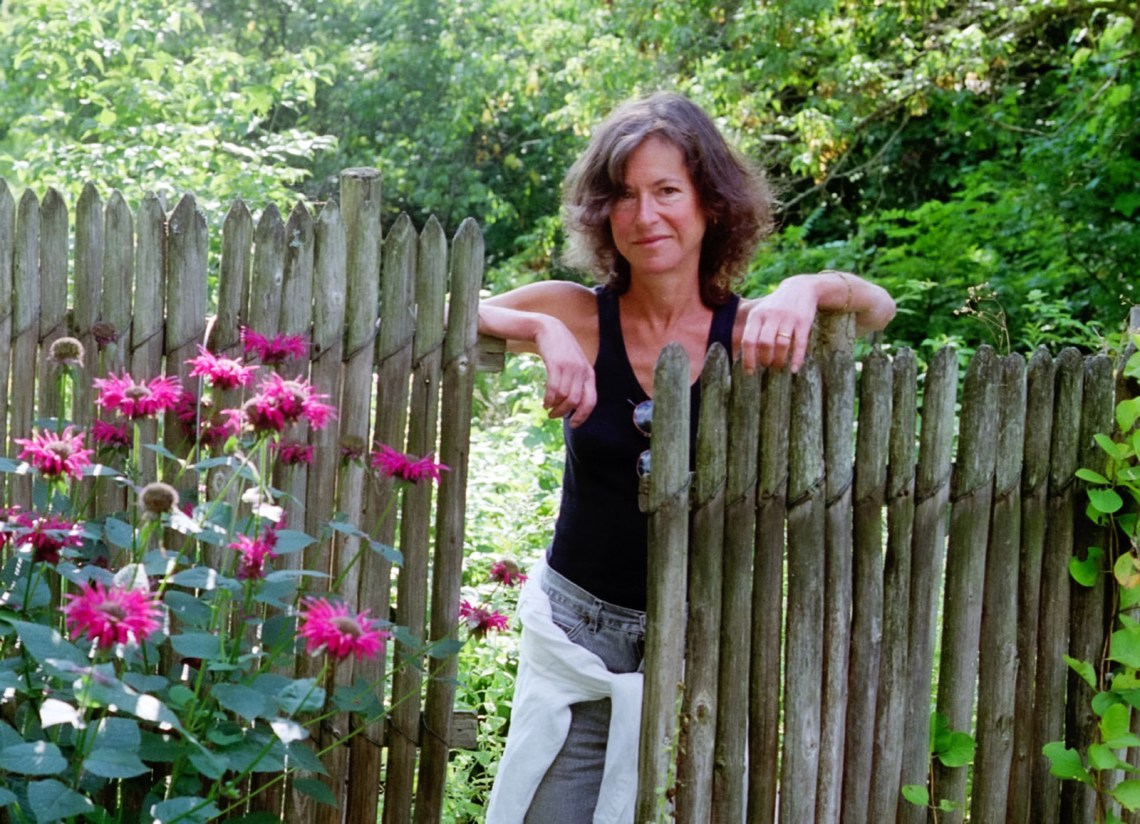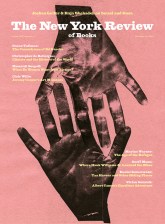The news that Louise Glück had died reached me an hour or so after I learned, from others in her large circle of friends, that she’d been diagnosed just weeks ago with untreatable cancer, and would soon enter hospice care. I was out walking, thinking of what I would say in an e-mail to her—since the cancer, I was told, made speaking on the phone difficult. My intention was to sit down on my front porch later on this glorious October afternoon, with leaves falling all around me, read her great poem “October,” and tell her what she’d meant to me. Instead, at 4:32 PM on the day she died, I am writing this.
When Louise won the Nobel Prize in 2020, her public reaction was utterly characteristic and authentic: she worried her friends would be mad at her, since “most of my friends are writers.” She also gave voice to an impulse prompted, I believe, by that fear: she wanted to buy a house in Vermont, probably in Montpelier, near the home in Plainfield where she lived for decades with her husband John Dranow and their son, Noah, and away from the competitive worlds of Boston and New York, where she was now, this private person, a star. In Vermont, she could see friends the way she preferred: one at a time, and with ample time and sufficient lead-up; also with some sense of ceremony, so that the rapport devised within the formal framework would seem all the more delectably natural, an accomplishment, a collaborative triumph.
Vermont was an important subtext of our friendship. “I miss Vermont,” she would say, in a booth at the Casablanca in Harvard Square; and I would say, “I miss it too,” as though something had happened to the state. It is and was a small world up there, and the ways we had overlapped surprised us both. I became aware of Louise when I was in high school, not because I had read her magnificent work, but because the antagonist in the poems she was writing—the Circe to her Penelope in Meadowlands, her hilarious and devastating rendition of the Odyssey, and my favorite of all of her books—worked with my aunt at a highfalutin French restaurant in Burlington called Déjà Vu.
Years later when I met Louise and divulged this weird coincidence, she was delighted, and we instantly became sharers of gossip, entering into long analyses of the human absurdity, deceit, and desperation that we saw all around us, and that especially concentrated in the poetry world. These discussions spanned long dinners that always began around 5:00 PM, for Louise loved to eat very early. In fact I would often eat a second dinner after I’d met her, partly because during the first dinner I was often too preoccupied with our conversation to eat much. Later in our friendship she asked me point-blank if I had a second dinner on the nights we dined, and I lied and said no, and I am sure she saw through it.
When our dinners were regular, they were quite regular: twice a month was what she preferred, and always at the same restaurant, since Louise was elaborately loyal to restaurants she loved. I was never aware of more than three, three at the very most, restaurants she would go to in a given era; usually there was just one, and she fell hard for it before, eventually, falling just as hard for a new place, and leaving the bewildered waitstaff and kitchen staff at the spurned old place wondering where on earth she’d gone. The ritual, wherever we were, was as follows. The waiter would appear and take our drink order; I always ordered a martini, up with olives; Louise then interjected, “extra olives,” leaving the waiter wondering what kind of weird scenario he’d been conscripted into. The martini would arrive, with seven or eight olives in it, barely room for the gin. Louise would then poke her index finger into the glass and hook it, bobbing for olives, one every five minutes or so. She did not drink hard alcohol because of her epilepsy, but she loved the taste of gin. Sometimes her finger would be in the glass for quite a long time, if the olives were especially slippery. I must say I never minded this; in fact I liked it very much.
During the first year of the pandemic we started up a correspondence after I’d let our friendship slip. I was always letting the friendship slip, always begging for forgiveness once I realized how much I’d missed her. Her reaction at the beginning of these cycles was always to say, “I forgive you, and I will forgive you next time, too.” This time my lapse seemed especially cruel. She had suffered the incalculable losses of her sister, Tereze, and of her ex-husband John, whom she still loved. Then she won the big prize—hooray, my God!—and we began exchanging real estate listings in the Montpelier area. Around this time, her marvelous twin granddaughters were born in California. She wanted a proper home where they could visit for long stretches. I believe she chose her new house with them in mind, in part because she wanted them to grow up knowing and loving Vermont.
Advertisement
So we began to make plans to renew our friendship in Montpelier, where, she told me, she’d never been happier or more at ease. Covid was still in the air, so we agreed to eat outside on a bone-chillingly cold day last November. I picked her up in my Jeep, which has jacked-up suspension; she saw this slight reinvention of my persona as ludicrous, and told me. We were to eat under the heat lamps, on an evening when the temperature was around twenty degrees. I layered up with old, shitty coats. Louise wore several exquisite pieces, but we both looked like animals hiding in dens, our eyes recessed in the piles of coats as we shivered at the table over parsnip soup. When the martini arrived, Louise’s finger was shaking as she fished one after another olive out of my gin.
The next day we drove to Plainfield, ten minutes away by glorious backroads, gushing about Vermont the whole way; craven monster that I am, I was trying to get her to participate in my book about Bernie Sanders. Louise hated Bernie—the issue was tonal and stylistic, not political, but then again, style and tone were decisive features of politics for her. The Winooski River Valley incubated Bernie, and hippie culture in Vermont more generally, and Louise, not remotely a hippie, loved being surrounded by the “spectacles of good intention” she encountered among her muffin-baking, contra-dancing friends in that neck of the woods. We drove up the driveway of the house on Creamery Street that I knew so well from her poetry. She approved of what had been done to the property, and we circled the small village taking stock of how little it had changed. She remarked that she was able “to take the same yoga class” she’d last attended in the 1980s.
I saw her again this past August, just weeks ago, really; our plan was to see each other regularly throughout the fall. Montpelier, a Playmobil-scale city, had been devastated by floods the month before. There were tubes and chutes leading out of most of the downtown businesses and many of the state buildings, but the diminutive State House, with its gold dome like an overturned teacup, was standing proud. I told her it made me want to cry; she said something sardonic, and the old rapport immediately kicked in. Louise was concerned that the only restaurant available was a “goofy,” “adorably bad” Italian place where I’d taken dates in high school. But despite the antipasti platter and food court salad, she said she’d never been happier; that all her thoughts were “prose thoughts”; that she was planning essays and “some other things,” by which I think she meant those astonishing prose blocks she’d used to construct the book dedicated to her granddaughters, Marigold and Rose. The martini arrived, Louise’s finger went into my gin, and we feasted on shriveled caper berries, cubed hard pecorino, and canned roasted peppers.
When I dropped her off, I surprised myself by saying, “I love you.” I believe I had never said that before to her. She said, “I love you too, though I have reasons not to.” I said, “That’s not how it works.” That part I had learned from her.
This Issue
November 23, 2023
Inhumane Times
Causes for Despair
Ed Ruscha Bigger than Actual Size




